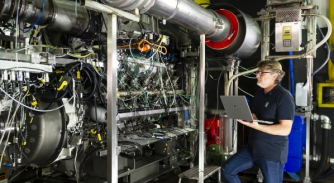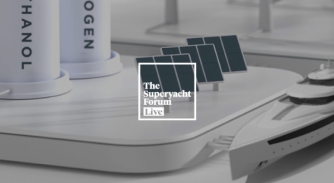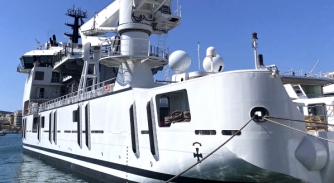The rising importance of fuel testing for superyachts
Testing remains imperative despite the predominant use of distillate fuels across the sector, says Lloyd's Register…
In recent years, marine fuel suppliers have introduced more blended products into the supply chain. While the catalyst for this has been increasingly stringent environmental regulations – regulations that the superyacht industry already adhered to – this overall change in the supply pattern of marine fuel has led to varying characteristics that could cause issues for superyachts if not managed properly.
Superyachts have been using distillate fuel reliably for many years, but crew are now encountering problems more frequently. This is being reflected in an increasing interest in fuel testing – LR is seeing more of the superyacht fleet sign up to its Fuel Oil Bunkering Analysis and Advisory Service (FOBAS) as crews seek assurance to enable them to manage the fuel more efficiently to reduce any potential operational risks.
As Andrew Shaw, LR’s Fuel Testing Sales Director, explains, “Superyachts need to be available for owner and guest usage all the time, so they can't afford to have a fuel problem. Fuel testing alerts the crew to any particular characteristics that may cause problems and advises them how to manage it.”
Through FOBAS, LR can identify components within these modern blends of fuel that could cause superyachts issues from a safety or operational perspective. Fuel with a low flash point, for example, is a serious safety concern that could invalidate a vessel’s insurance. Furthermore, the fuel’s cold flow properties impact the temperature at which wax forms in the fuel – something that could lead to engine issues for superyachts cruising in colder climates.
Biofuel is another component increasingly present in the supply chain. This could be an issue for superyachts because, as well as being susceptible to breakdown through oxidation after a length of time, biofuel has a propensity to absorb water content. For superyachts, which typically operate in humid conditions, the presence of water in fuel increases the risk of microbial proliferation and, without treatment, can result in filter blockages and engine failures or damage. As Shaw advises: “Declared distillate biofuel blends are not uncommon in certain ports, but the issue is whether the yacht’s crew are aware that they are being given a biofuel blended product and of the potential challenges it could bring.”
FOBAS is LR’s solution to managing the challenges increasingly associated with fuel. When a superyacht signs up to the service, the crew will receive a sample kit for taking several representative fuel samples during bunkering: one to send to the laboratory; one to offer to the fuel supplier; and one to be kept on board in case of a dispute. The sample will be tested at an independent laboratory for all the characteristics relevant to superyacht operations.
LR then provides the vessel with a detailed report of the analysis, including a comprehensive technical support element to help the crew understand the impact of the results. “If any of the results highlight potential issues within the fuel, the technical support will advise how the fuel can be used safely and correctly or, in a critical scenario, if the vessel needs to be de-bunkered,” Shaw adds. “We recognise that time is of the essence in these situations, so speed of service is a main priority.”
LR also offers a total fuel management package for superyachts. Designed for a superyacht’s specific operational profile, this package includes analysis of bunker samples, sampling and analysis of tank samples and periodic health checks on tanks and fuel systems, thereby minimising any safety and operational risks associated with fuel.
When it comes to fuel-related issues, prevention is always better than cure. While some superyachts may not have experienced any adverse effects on safety, operations or performance due to fuel yet, it's a risk that remains. Carrying out fuel testing on a regular basis mitigates that risk and our Fuel Oil Bunkering Analysis and Advisory Service is supported by the full technical engineering expertise from LR.
Source: Lloyd's Register
Profile links
NEW: Sign up for SuperyachtNewsweek!
Get the latest weekly news, in-depth reports, intelligence, and strategic insights, delivered directly from The Superyacht Group's editors and market analysts.
Stay at the forefront of the superyacht industry with SuperyachtNewsweek
Click here to become part of The Superyacht Group community, and join us in our mission to make this industry accessible to all, and prosperous for the long-term. We are offering access to the superyacht industry’s most comprehensive and longstanding archive of business-critical information, as well as a comprehensive, real-time superyacht fleet database, for just £10 per month, because we are One Industry with One Mission. Sign up here.
Related news

Rolls-Royce successfully tests mtu engines with pure hydrogen
Rolls-Royce has successfully tested a 12-cylinder gas variant of the MTU Series 4000 L64 running on 100% hydrogen
Business

Lloyd’s Register’s role as a trusted Class adviser
CEO Nick Brown explains how the global company wants to work with owners and stakeholders to find safe, reliable and sustainable solutions
Technology

TSF Keynote: Fuelling the future
On Day Two of The Superyacht Forum, Lateral Naval Architects and PA Consulting will discuss the Hydrogen infrastructure strategy
Business

Biocide Overuse: A cause for concern in superyacht maintenance?
Pierre Poitras, Technical Consultant at Conidia Bioscience explains why biocides are not necessarily the way to go for the future.
Crew
Related news
TSF Keynote: Fuelling the future
3 years ago
NEW: Sign up for
SuperyachtNewsweek!
Get the latest weekly news, in-depth reports, intelligence, and strategic insights, delivered directly from The Superyacht Group's editors and market analysts.
Stay at the forefront of the superyacht industry with SuperyachtNewsweek




